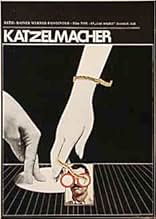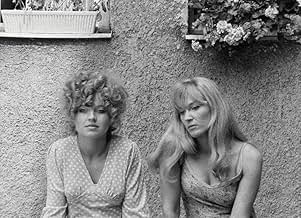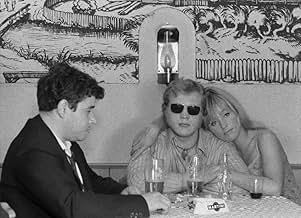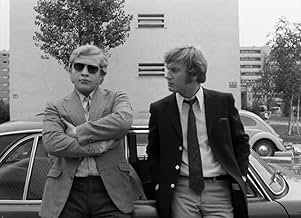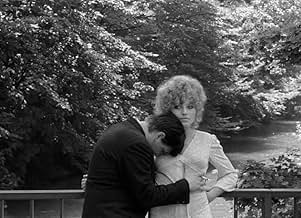Jorgos, a migrant worker from Greece, joins a group of young people in Munich usually hanging around. This foreigner incites hostility and jealousy among them, and he is insulted as a "Commu... Read allJorgos, a migrant worker from Greece, joins a group of young people in Munich usually hanging around. This foreigner incites hostility and jealousy among them, and he is insulted as a "Communist" and "Greek dog". After having been attacked, Jorgos talks to Maria of his wish to re... Read allJorgos, a migrant worker from Greece, joins a group of young people in Munich usually hanging around. This foreigner incites hostility and jealousy among them, and he is insulted as a "Communist" and "Greek dog". After having been attacked, Jorgos talks to Maria of his wish to return home.
- Director
- Writer
- Stars
- Awards
- 8 wins & 2 nominations total
- Director
- Writer
- All cast & crew
- Production, box office & more at IMDbPro
Featured reviews
In the interesting documentary, I Don't Just Want You To Love Me, Fassbinder claims that he didn't move the camera much during this time for aesthetic reasons. His cinematographer (Dietrich Lohmann), however, says that aesthetics had little to do with it; they simply couldn't easily move the bulky camera and dolly, and they had no budget to rent better equipment.
This film is part of an experimental avalanche, and it is amazing. The particular art house feel is a result of the times, and as Fassbinder moves on it is fascinating to contemplate how he gets his message across, using different styles. He was truly fearless, and all of his stuff is worth serious consideration.
Katzelmacher becomes even more interesting after viewing his later work.
Another great character driven piece by the German maestro with the ugliest facets of human nature being explored as the members of the insular and narrow minded group start to spread rumours and make their prejudices known towards young Jorgos. After an innocuous chance meeting in the street with one of the women from the gang, the group's Chinese Whispers soon snowball to him having tried to rape her as well as other crimes such as him being a Communist.
The men of the group then seize their opportunity to beat him up for crimes he isn't guilty of.
Conformity, group hysteria and mobbing by the gang are all explored perceptively within Katzelmacher which makes it, unfortunately, ring all too true.
Beautifully acted, perfectly framed and directed and with a gorgeous late 60's black and white which is icy cool and absolutely gorgeous.
Look out for the scene of the young woman dancing.
Highly recommended.
Did you know
- TriviaShot in nine days.
- Crazy creditsEs ist besser neue Fehler zu machen, als die alten bis zur allgemeinen Bewußtlosigkeit zu konstituieren (Yaak Karsunke)
Details
Box office
- Budget
- DEM 80,000 (estimated)
- Gross US & Canada
- $8,144
- Opening weekend US & Canada
- $11,623
- Feb 16, 2003
- Gross worldwide
- $8,158
- Runtime
- 1h 28m(88 min)
- Color
- Sound mix
- Aspect ratio
- 1.37 : 1

